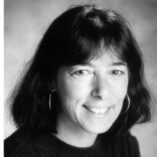Counting the Omer – the 50 days between Pesakh and Shavuos – never made a lick of sense to me. How much the less so the holiday called “The thirty-third day of counting the days between Pesakh and Shavuos” – L’g B’Omer. (The Hebrew letters lamed – the “L” sound – and gimmel – the hard “G” sound – add up to 33 in the alphanumeric counting system.) I mean, really, what is the point?
A Jewish tradition has it that the period of the omer is a sort of half-mourning, generally explained as mourning for a plague that happened during the early second century. Apparently there was some sort of let-up of the plague on the 33rd day after Pesakh, so on this day the half-mourning stops, just for the day. During the half-mourning, there are no weddings and no haircuts, so these events traditionally happen on L’g B’Omer. In Israel, bonfires are traditional – but we live in California and bonfires are not really advisable.

Instead, many Jews – including our TVCJ community – picnic on L’g B’Omer in honor of the Jews who had to hide their Jewish study during Roman times and would, therefore, the story goes, go out to the woods to study Jewish texts in secret. One story has it that they would pretend to be hunting when the Roman soldiers were around. (This is actually pretty hilarious, as hunted meat is not kosher.)
But back to what it means. Until this year, it really meant nothing to me except it was a day to get together with my community and have a picnic. But this year, the idea of a break in mourning speaks to me. We Jews are sad, mad, distressed, outraged – name your unpleasant, uncomfortable emotion; we’re feeling them all. We feel burdened. We feel helpless. We get mired down in the horror of October 7 and Gaza and settler violence. We are confused and bewildered by the Jew-hatred of our fellow Americans. It’s all overwhelming. We need a break from the heartbreak. We need a picnic and field games and maybe even a bonfire. We need L’g B’Omer.
So this year, on L’g B’Omer, we briefly lift our mourning. Then, the next day, we can take up again our sadness, but restored enough to keep working for the watchwords of our Secular Humanistic Jewishness – a better and more beautiful world.
